Fund crunch hits Rohingyas hard
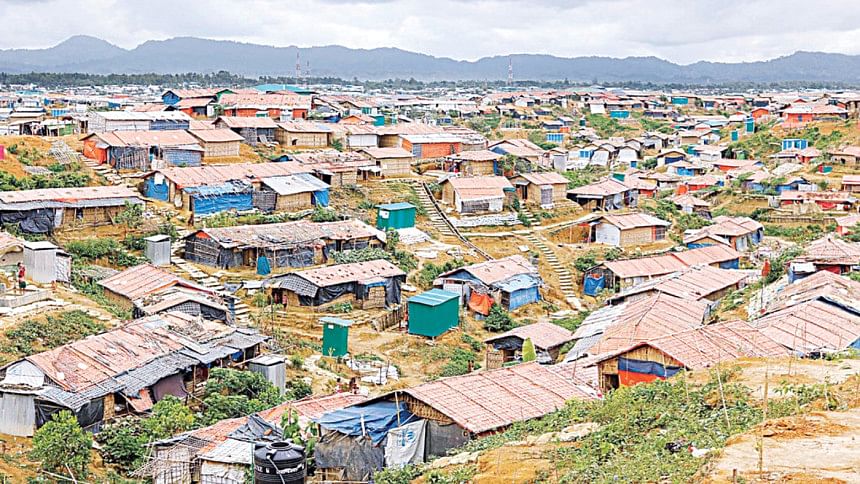
A humanitarian crisis in Cox's Bazar Rohingya camps is brewing in the face of funding shortage for the refugees and more arrivals from the conflict-ridden Rakhine state of Myanmar.
This year, $934 million is needed for the 1.5 million people -- 1.2 million Rohingya and 300,000 host community members -- but only 19 percent of the funding requirement has materialised.
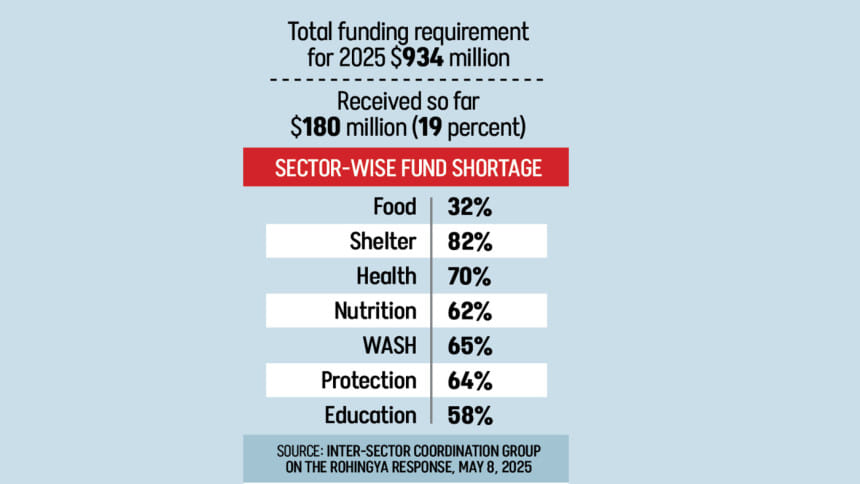
The gap has widened largely thanks to the funding cut by the Trump administration that in February eliminated more than 90 percent of the USAID-funded foreign aid contracts and $60 billion in overall US assistance worldwide.
The overnight suspension of US funding came as a huge shock to the humanitarian community, The Daily Star has learnt from UN officials.
The other donors who committed funding will release it in August or November, but their amounts have also declined.
Last year, the total funding received was 68 percent of the required amount, but this year it may not even reach 50 percent, said a UN official on the condition of anonymity as he is not authorised to speak with the media.
Dozens of projects including health, family planning, nutrition and education, supported by the USAID have been affected since the USAID cuts.
For example, data collated by the Cox's Bazar District Family Planning Office says service recipients of oral pills declined to about 10,000 in April from over 20,000 in February, while condom recipients came down to 3,800 from over 6,500.
The number of general patients seeking medical treatment in the Rohingya camps declined to 205,000 in April from 372,000 in February.
"We are facing serious problems in receiving medical treatment -- we no longer receive sufficient medicine as before," said Badrul Alam, head of Camp 26 in Ukhiya Rohingya camp.
In cases of serious illness, the Rohingya are having to seek treatment from doctors at their own expense, which is not possible for all refugees, he told The Daily Star yesterday.
The latest sector to be hit by the fund cut is education, leaving at bay the future of 230,000 Rohingya children in Cox's Bazar, where about 1.2 million Rohingya have been living since 2017 after fleeing a brutal military crackdown in Rakhine State.
On June 2 and 3, hundreds of host community teachers terminated from their jobs in the learning centres of Rohingya camps blocked the Cox's Bazar-Teknaf road, signalling deepening tension between the host community and Rohingya.
Rohingya children will face serious safety risks with the closure of learning centres, which worked as protection spaces, said Rohingya rights activist TK Aung Myo.
"Our Rohingya children are among the most vulnerable in the world," said Master Mohammad Zubair, chairman of the Arakan Rohingya Society for Peace and Human Rights.
For them, education is a beacon of hope during a humanitarian crisis. Through education, they learn discipline and structure.
"It is frustrating that the beacon is now going off," he added.
The disruptions are taking place at a time when the vulnerable refugee camps were hit hard by the monsoon rains last weekend, damaging 1,400 homes.
Communal spaces are being used to temporarily host affected families, said interim UNHCR Representative Juliette Murekeyisoni.
However, even before the monsoon, there was not enough space to provide shelter to all, especially as thousands of newly arrived Rohingya have sought asylum here in recent months, she said.
Over the last few months, according to a WFP update, some 150,000 Rohingya have fled to Bangladesh and 50,000 more may flee by the year-end, making it challenging for the authorities to provide basic services.
With drastic cuts in services in the camps, it is very likely that the Rohingya will be desperate to flee the camps, either to engage in local jobs or take risky journeys to foreign lands, said Rohingya Relief and Repatriation Commissioner (RRRC) Mizanur Rahman.
The criminal activities among the Rohingya -- including intra-feud, domestic violence and drug peddling -- may rise, he said.
A UN official based in Cox's Bazar said UNICEF, IOM and UNHCR have reduced to around 500 staff -- both local and foreign nationals -- following funding cut by the US government, which provides more than 50 percent of the total Rohingya funding.
"We have a food guarantee until October but after that what happens is up in the air. The Rohingya as well as the affected host community remain at serious risk," the official said.
Handicapped International, a specialised non-governmental organisation used to serve the more than 10,000 disabled Rohingya, but their operations are on halt now. There is none to support people with disability.
"Gender-based violence in the camps is quite high. Services like handling these complaints and providing psychological support are so important for the people who fled genocide, but these services have become thin. We are very worried about what's going to happen in the days to come," said a UN official on the condition of anonymity.
Funding cuts have led to some basic services like health and education, which is a violation of human rights, said Mohammad Zubair, chairman of the Arakan Rohingya Society for Peace and Human Rights.
The decline of aid is a matter of concern, but more concerning is how efficiently the aid is being used in the management of the Rohingya camps, said Rezaul Karim Chowdhury, executive director of the COAST Foundation.
"We have always been demanding that local NGOs be deployed to manage the Rohingya camps, while the UN remains at the policy level. But, we have seen that international aid agencies engaged in the management. This is not cost-effective," he said.
The UN and international aid agencies need to have greater collaboration with the local authorities on effective management of the Rohingya camps, said RRRC Mizanur Rahman.
"Now it is more important than ever to restore the basic services for the Rohingya."


 For all latest news, follow The Daily Star's Google News channel.
For all latest news, follow The Daily Star's Google News channel. 


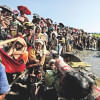
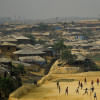

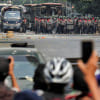

Comments